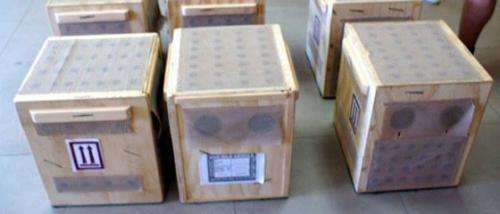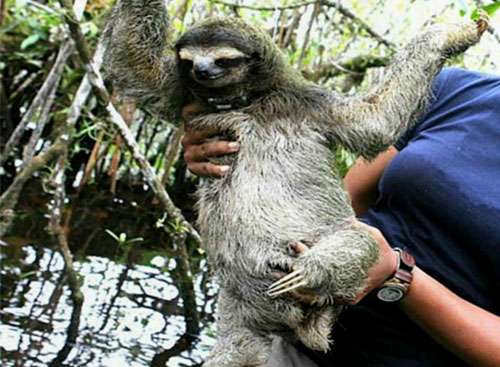Attempted live sloth export sparks international conservation incident

An attempt by a private American zoological attraction to capture and export six Critically Endangered pygmy three-toed sloths from Escudo de Veraguas island off the Caribbean coast of Panama has created international uproar, and sparked a controversial conservation debate.
The pygmy three-toed sloth is only found on this tiny island, and the total population of the mammal is estimated to be less than 100 individuals. On-ground organisations have reported that a team working for Dallas World Aquarium captured eight sloths and made an attempt to fly six of them from the local airport in Bocas del Toro to the United States.
Despite the small size of both the island and the global population of the species, there is huge international interest in the pygmy three-toed sloth. ZSL, known globally for its conservation research programmes recently conducted a thorough population census of the species on Escudo de Veraguas and maintains a continued presence there. The Flagship Species Fund also supports local Panama conservation organisation Fundación Conservación, Naturaleza y Vida's (Fundación CONAVI) in their programme to raise awareness of the plight of the pygmy three-toed sloth.
Fundación CONAVI's Director Lenin Riquelme Quintero said of the incident, "The sloths were taken to the airport with their captors attempting to board an entrepreneur's private jet, to take the animals to the United States."

A report from Mongabay states that a police officer on duty at the airport initially raised the alarm, after noticing the crates and "…alerted his supervisor. Within minutes, the local police chief, the mayor of Bocas, the director of the regional office of the National Environmental Authority (ANAM), community leaders and heads of local conservation organisations were informed about the incident. Little by little, a crowd of concerned citizens from Bocas town gathered around what turned out to be eight pygmy sloths…"
The crowd is reported to have protested loudly, succeeding in stopping the sloths being boarded.
Given the tremendous uproar this situation created in the community, the zoo decided to return the sloths.
Mr Quintero continued, "Our colleagues from the Smithsonian Tropical Research Institute's (STRI) field research station took the sloths back to Escudo Island where they have now been safely released."
It was revealed that the private zoo group attempting to remove the sloths had obtained official permits from ANAM, declaring their intention to establish an insurance population of the species, should numbers become unviable for continued sustainable population, which was confirmed in an email from a zoo spokesperson last week. Conservationists argue that there is no record of pygmy three-toed sloths ever having bred in captivity with captive populations notoriously known to survive very poorly.
Major criticisms have been that successful captive breeding needs to be carried out as part of a carefully monitored species management plan, which does not exist for this species, and poor or no consultation with other scientists studying the sloths on the island, or any cooperation with the IUCN/SSC Anteater, Sloth and Armadillo Specialist Group, a group consisting of individuals considered the world's foremost authorities on this species, was attempted.
Provided by Fauna & Flora International


















